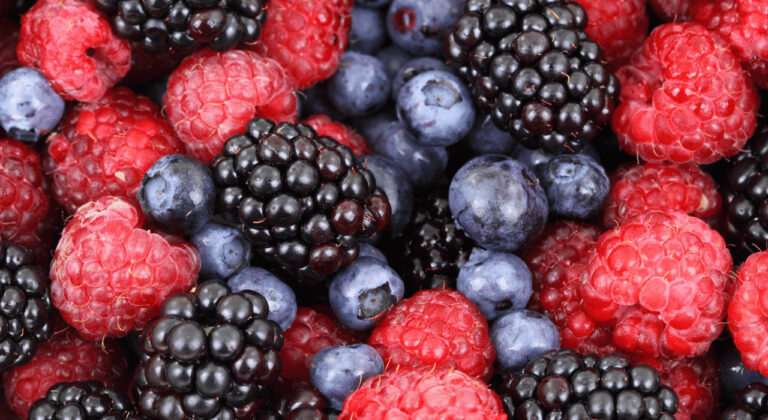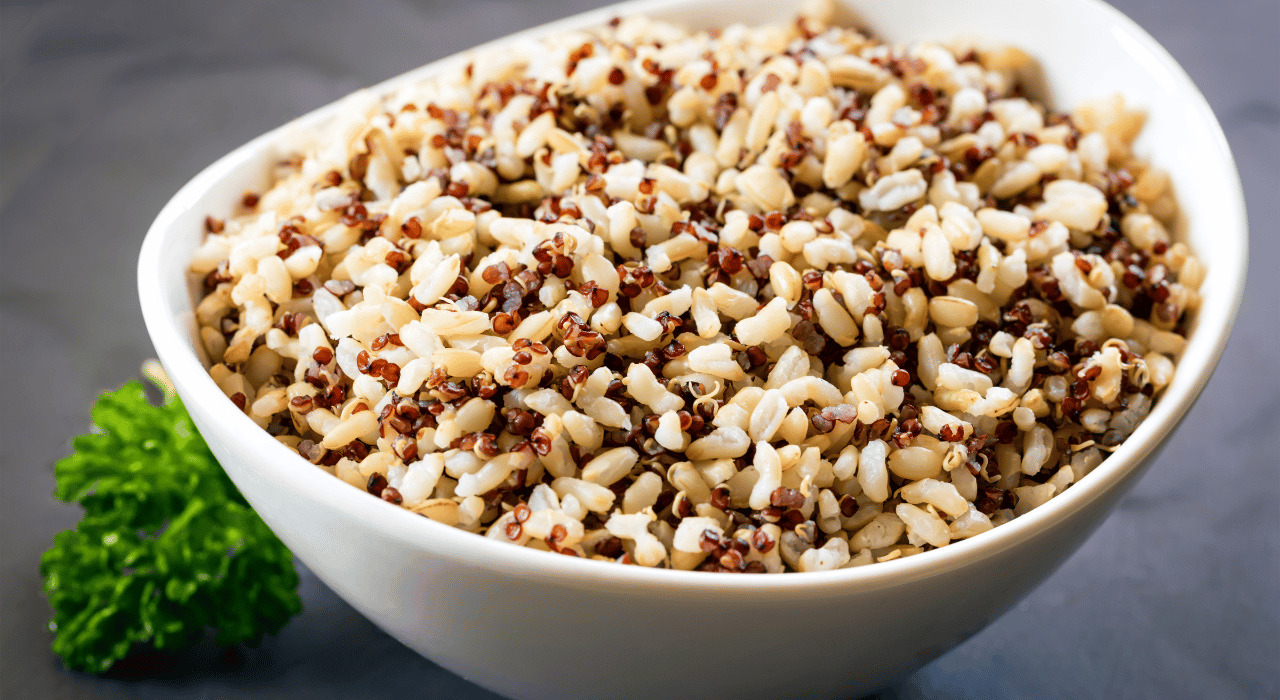
Fuel your athletic journey with these 10 powerhouse foods! From spirulina to kale, discover how superfoods enhance performance and expedite muscle recovery.
10 Powerhouse Foods for Athletic Excellence
Thanks to modern research, we know that the quest for athletic excellence is not solely confined to relentless training routines; it strongly depends on optimal nutrition. It’s true when people say, “You are what you eat”, especially regarding sports and fitness. A nutrient-rich diet acts as the bedrock of enhanced athletic performance and expedited muscle recovery. Among the vast spectrum of nutritious foods, superfoods, distinguished by their dense nutrient profiles, stand out as remarkable allies in an athlete’s journey towards achieving their ultimate fitness goals.
Dr Oluwaseyi Kayode, a medical associate at the renowned Walk-in Clinic, remarks, “Nutrition is the cornerstone of athletic excellence. Superfoods, in particular, provide a robust foundation, significantly enhancing energy, endurance, and recovery, which are pivotal for athletic success.”
What you put in your body for nutrition and diet is key to give you energy during tough workouts and help your body recover fast afterwards. Adding superfoods to your diet can boost these great effects from your training. This close tie between what you eat and how you train shows why the old saying is still wise advice for anyone aiming to do their best in sports. Now, let’s dive into the 10 superfoods that can help you reach your peak performance.
1. Spirulina
Spirulina is a blue-green algae that comes in powder form and has a slightly seaweed-like taste. It’s lauded for its antioxidant properties, which help combat oxidative stress, promoting enhanced muscle endurance and quicker recovery. It has shown potential in preventing exercise-induced lipid peroxidation, inflammation, and skeletal muscle damage and may also accelerate the recovery of some markers.
Furthermore, spirulina is a true protein powerhouse, providing a substantial amount of essential amino acids crucial for muscle repair and growth. It’s also a rich source of B vitamins, which play a vital role in energy production, enhancing its appeal for athletes and fitness enthusiasts.
Training Benefits: By aiding in muscle endurance, combating oxidative stress, and promoting quicker recovery, spirulina facilitates consistent training routines. Its ergogenic potential increases oxygen uptake exercise tolerance and helps delay fatigue during submaximal exercise, which is beneficial for endurance athletes.
2. Chia Seeds
Chia seeds effectively promote muscle recovery after intense workouts due to their good amount of protein and high omega-3 fatty acid content, which helps reduce inflammation and promote faster recovery.
The unique blend of nutrients in chia seeds provides a slow release of energy, making them an excellent fuel source during prolonged workouts. Their ability to absorb water aids in maintaining hydration, which is crucial for optimal athletic performance.
Training Benefits: Chia seeds’ energy-sustaining attributes are invaluable during prolonged workouts, ensuring you remain fuelled throughout. Their anti-inflammatory properties also aid in muscle recovery post-exercise.
3. Quinoa
Quinoa, a grain crop cooked and used similarly to rice, is a complete protein source with all nine essential amino acids necessary for muscle repair and growth. It also contains antioxidants, which might aid exercise recovery by limiting muscle damage post-vigorous workouts.
Quinoa provides a steady release of energy, supporting sustained performance during training, and is also a good source of magnesium, iron, and B vitamins, essential for energy production and muscle function.
Training Benefits: Quinoa supports robust muscle repair and growth, which is vital for those intense training days. It’s an ideal food for building lean muscle mass due to its high protein and low-calorie content.
4. Beetroot
Beetroot is renowned for its ability to enhance blood flow and oxygen delivery to muscles owing to its nitrate content. It has been found to improve athletic performance and muscle contractions and reduce muscle soreness post-exercise. Beetroot’s antioxidant properties, such as betalains, help reduce oxidative stress and inflammation post-exercise, further aiding muscle recovery.
Training Benefits: Improved oxygen delivery enhances performance and endurance, making beetroot a valuable addition to pre-workout meals. It also promotes faster muscle recovery.
5. Turmeric
Turmeric is the bright yellow-orange spice derived from the root of the Curcuma longa plant, with a warm, bitter taste. Turmeric, especially its active component curcumin, is known for its potent anti-inflammatory and antioxidant properties. It has been found to reduce exercise-induced inflammation and muscle soreness and enhance athletic recovery.
Turmeric also supports joint health, which is crucial for athletes to prevent injuries and maintain a consistent training routine. Studies have shown that curcumin can enhance recovery after intense exercise, reducing muscle damage and soreness.
Training Benefits: Turmeric aids in alleviating post-workout muscle soreness and accelerates recovery, ensuring you are ready for the next training session. Its support for joint health is also vital for long-term athletic performance.
6. Sweet Potatoes
Sweet potatoes are excellent sources of complex carbohydrates, which are vital for replenishing glycogen stores post intense training sessions, promoting muscle recovery. They’re also rich in beta-carotene, an antioxidant that combats exercise-induced oxidative stress, and vitamin C, which aids in collagen production, crucial for maintaining muscle and joint health.
Additionally, they contain potassium, an essential electrolyte that aids in muscle contractions and maintaining fluid balance, vital for athletes during prolonged workouts.
Training Benefits: The complex carbohydrates in sweet potatoes provide a sustained energy release, vital for enduring rigorous training sessions. At the same time, their micronutrient content supports muscle recovery and overall muscle and joint health.
7. Berries
Berries are rich in anthocyanins, powerful antioxidants that enhance blood flow and are crucial for delivering oxygen and nutrients to muscles during and after workouts. They also contain vitamin C, which reduces cortisol levels post-workout, aiding recovery and reducing muscle soreness.
Additionally, the fibre content in berries promotes a healthy digestive system, which is key to optimal nutrient absorption, a necessity for athletes to glean the benefits from the foods they consume.
Training Benefits: The antioxidant and anti-inflammatory properties of berries aid in reducing muscle inflammation and promoting quicker recovery post intense training sessions.
8. Salmon
Salmon is rich in omega-3 fatty acids, known for their anti-inflammatory properties and crucial for muscle recovery. The high-quality protein in salmon provides essential amino acids necessary for muscle repair and growth. Salmon contains astaxanthin, an antioxidant that combats oxidative stress and inflammation, promoting quicker muscle recovery. Vitamin D present in salmon supports muscle function and bone health, indispensable for athletes to prevent injuries.
Training Benefits: The anti-inflammatory and protein-rich nature of salmon supports muscle repair, which is crucial post intense training, while its micronutrient content promotes overall muscle and bone health.
9. Almonds
Almond nuts are rich in vitamin E, an antioxidant that aids in reducing muscle soreness and promotes faster muscle recovery post-workout. They also contain magnesium, which is essential for muscle function, energy production, and maintaining electrolyte balance, aiding in muscle relaxation and contraction. The protein content in almonds provides essential amino acids necessary for muscle repair and recovery, while healthy fats provide sustained energy, which is vital for endurance athletes.
Training Benefits: Almonds aid in energy production, ensuring you stay energised during workouts and support muscle recovery post-training.
10. Kale
Kale, a leafy green vegetable with a slightly bitter, peppery flavour, is a nutrient-dense green rich in vitamin C and known for its anti-inflammatory properties, aiding muscle recovery, and strengthening the immune system.
It also contains nitrates, compounds known for enhancing blood flow and improving muscle oxygenation during workouts, promoting enhanced performance and endurance. The calcium and magnesium content in kale is essential for bone health and muscle function, supporting overall athletic performance.
Training Benefits: Kale’s nutrient-dense profile supports overall athletic performance and muscle recovery and provides essential nutrients for muscle function and bone health.
The Role of Expert Medical Professionals in Guiding Your Nutrition & Diet
Navigating the realm of nutrition, especially in the context of athletic performance, can be complex and, at times, rather overwhelming. This is where the expertise of medical professionals becomes a beacon of clarity for you. Skilled practitioners in nutrition and health, such as those found at Walk-in Clinic, can provide personalised dietary advice, ensuring your nutrition aligns with your training goals and overall health.
Dr Kayode emphasises the importance of personalised dietary guidance. He states, “Each athlete has a unique physiological makeup and training regimen, which necessitates a tailored approach to nutrition and diet. We strive to provide individualised nutritional strategies that harmonise with one’s training objectives and promote overall well-being.”
Furthermore, experts such as Dr. Kayode can help debunk common nutritional myths, provide insights on managing dietary restrictions, and offer guidance on supplement usage. Engaging with a medical professional can significantly elevate your nutritional strategy, propelling you closer to your athletic aspirations.
In Essence
Superfoods are indeed a natural arsenal for boosting athletic performance and ensuring a swift recovery. By integrating these powerhouse foods into a well-rounded and balanced diet, you not only inch closer to your training goals but also foster overall health and wellness. The journey towards athletic excellence is holistic, where a sound nutritional strategy, guided by expert medical advice, forms a fundamental cornerstone.




